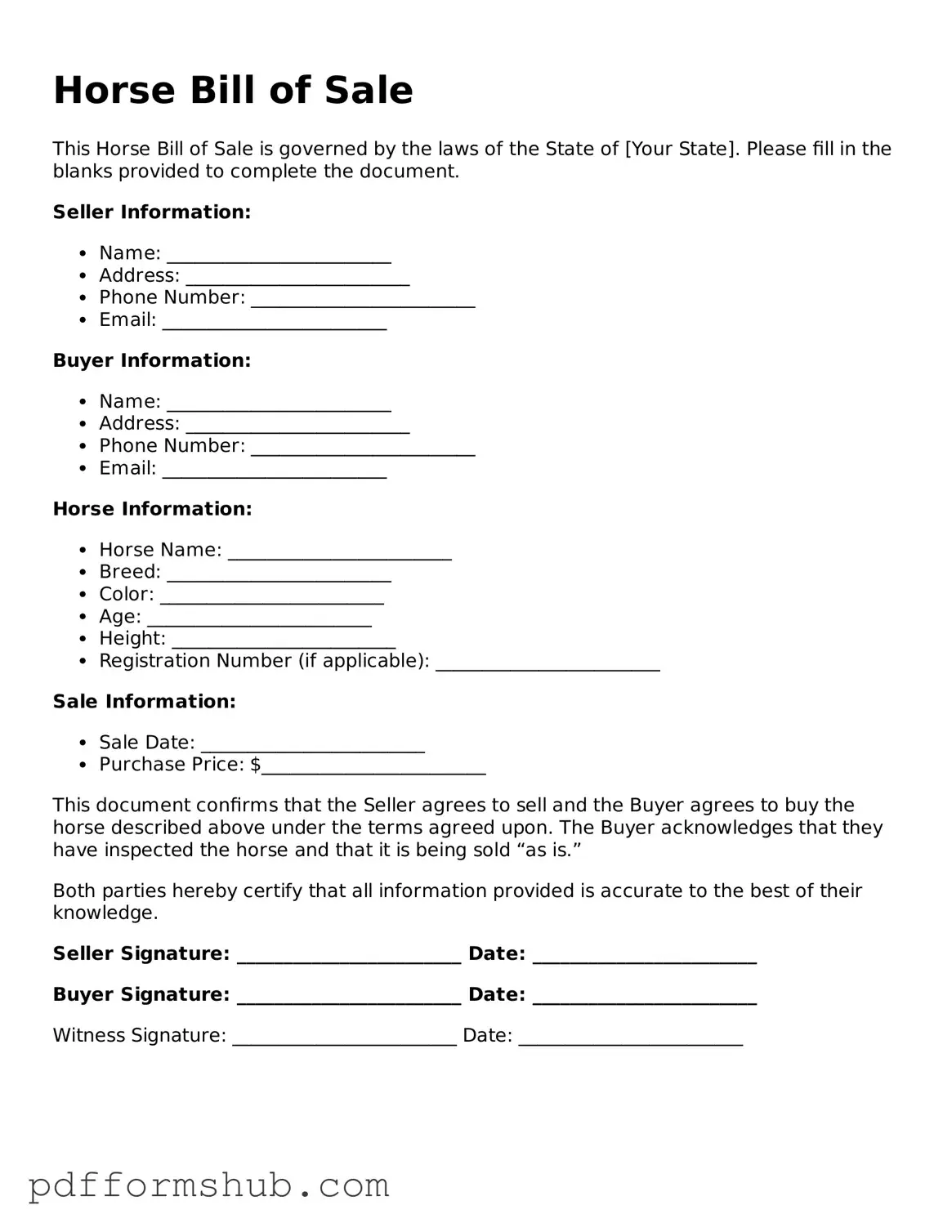Valid Horse Bill of Sale Form
The Horse Bill of Sale form is a legal document that records the sale of a horse from one party to another. This form outlines important details such as the horse's description, sale price, and the names of both the buyer and seller. Completing this form is essential for ensuring a smooth transaction and protecting the interests of both parties involved.
To get started, fill out the form by clicking the button below.
Customize Form

Valid Horse Bill of Sale Form
Customize Form

Customize Form
or
Free PDF Form
Short deadline? Complete this form now
Complete Horse Bill of Sale online without printing hassles.